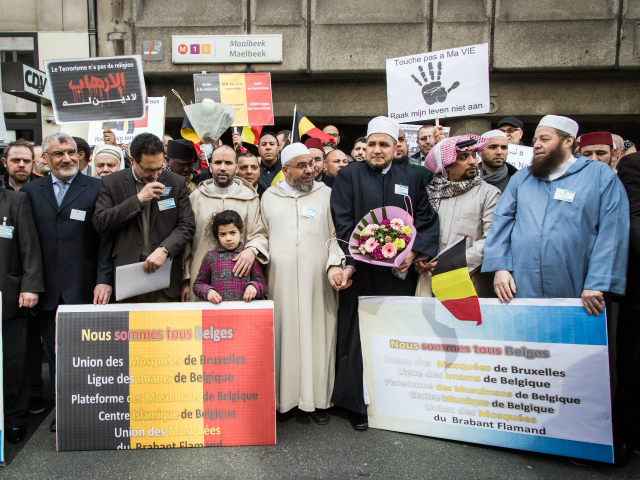Teachers working in the predominantly Muslim districts of Molenbeek and Schaerbeek in Brussels have reported that “90 percent of their students, 17, 18 years old” called the Islamist terrorists who attacked Paris and Brussels “heroes”.
The revelation came in an article in the New York Times, wherein Steven Erlanger spoke to a Belgian policymaker who relayed the information from Belgium.
The piece, entitled “Blaming Policy, Not Islam, for Belgium’s Radicalised Youth”, interviewed Yves Goldstein, chief of staff for the minister-president of the Brussels Capital Region and a Schaerbeek councilman. Schaerbeek and Molenbeek are now infamous as the areas in which for months Islamists lived, hid, manufactured weapons and made preparations for the Paris and Belgium attacks.
Reflecting that “our cities are facing a huge problem, maybe the largest since World War II,” Goldstein poses the question, “How is it that people who were born here in Brussels, in Paris, can call heroes the people who commit violence and terror?”
Dismissing the idea of Islam having played any role in the Paris attack and the bombing of Brussels airport and a subway station claiming that “religion for them is a pretext” and that they “believe in nothing,” the politician the boldly claims that the problem is a lack of exposure to diversity and modern art:
“We have neighborhoods where people only see the same people, go to school with the same people. What connection do they have with the whole society, what connection do they have with real diversity? It’s the establishment of the ghetto,” he says, “and it’s the thing in our urban development that we have to tackle.”
“These young people will never go to museums until 18 or 20 — they never saw Chagall, they never saw Dalí, they never saw Warhol, they don’t know what it is to dream.”
Erlinger reports that “Jews have left Schaerbeek, and the last two synagogues are being sold. Instead, there is a kind of suffocating, insular, ethnic uniformity” and describes Belgium’s system of integration as “somewhere between the French model, which put new immigrants in suburban ghettos, and the British and American one, which created communities like Chinatown or Little Italy.”
The article neglects to ask basic questions like why – if Islamic extremism is the fault of Belgian urban planning – is it happening globally? Why Jewish communities might have left Schaerbeek? Or why Chinese diaspora, living in Chinatown-like communities and taking no interest in modern art, seem to be at no risk of committing terrorist attacks?

COMMENTS
Please let us know if you're having issues with commenting.